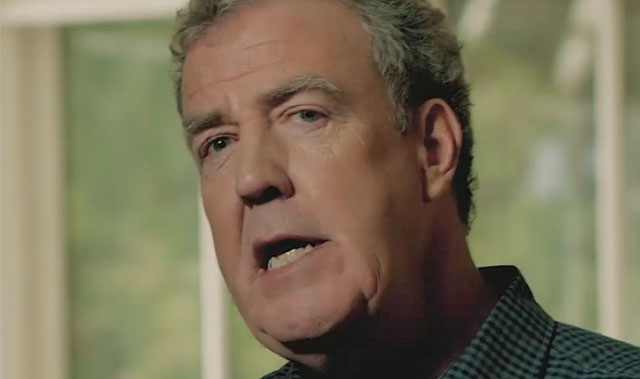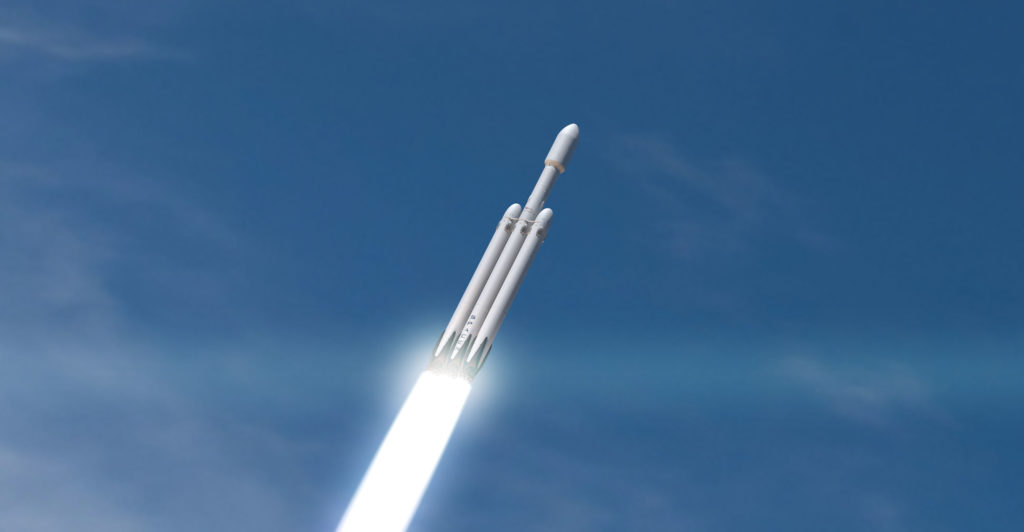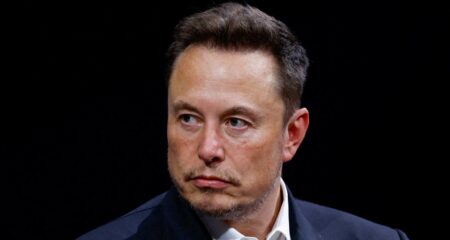
The motto at billionaire Jeff Bezos’s rocket company is “gradatim ferociter“, Latin for “step by step, ferociously”. The Amazon.com founder sees applying that intensity toward making space travel more like hopping on an aeroplane.
A week after his rocket rival Elon Musk revealed plans to send two unidentified people on a trip around the moon late next year, Bezos said on Tuesday that his Blue Origin has flown its New Shepard capsule and booster more than 100km into the air five times.
He sees flying thrill-seeking tourists on such missions — to the edge of space and back — bringing down costs much in the way modern-day trips on planes were made possible by stunt pilots who took trips with people in the 1920s.
“They would go around and land in farmers’ fields and sell tickets,” Bezos told the crowd at Satellite 2017, a conference held in Washington. “The entertainment industry can often be a driver of technology that then gets re-purposed. That tourism mission, because we can fly it so frequently, is going to be a real driver of our technology.”
While he may not go along for rides with Bezos or Musk’s SpaceX, US President Donald Trump may well give the two billionaires a boost by pressing for the US to return to the glory days of the 1970s Apollo era.
Following the White House’s request, Nasa last month began looking into whether a manned mission around the moon could be accelerated to as early as next year. Within days, Musk and SpaceX said they’d pull off that very feat.
A nudge from the leader of the free world can’t hurt with generating the interest in the tourist missions Bezos sees helping realise his vision of a future where millions of people live and work in space.
“Bezos laid out the logic of how he started with tourism to get learning cycles,” said Luigi Peluso, an aerospace and defence analyst at AlixPartners. “He started with suborbital tourism and got some technical credibility, and now he’s expanding.”
The expansion ahead for Blue Origin also involves inking deals with satellite customers. The company signed up French operator Eutelsat Communications and OneWeb as the first clients to use its New Glenn orbital rocket. The deals mark an entry into the commercial satellite market for a company that’s relied on its billionaire founder’s deep pockets for more than 15 years.
‘Lottery winnings’
Starting Amazon was “a lottery winning for me,” Bezos said Tuesday, before calling Eutelsat CEO Rodolphe Belmer on stage for their joint announcement. “I’m taking those lottery winnings and investing them in Blue Origin.”
The New Glenn rocket — named after John Glenn, the former astronaut and US senator who was the first American to orbit Earth — will launch with a Eutelsat satellite on board in 2021.
SpaceX, which has contracts with Nasa and commercial satellite companies, last week said two private citizens paid a “significant deposit” to go on the week-long flight around the moon. SpaceX will also launch a reused rocket for the first time before the end of this month, chief operating officer Gwynne Shotwell said at the satellite conference Wednesday.
A rocket company led by a third billionaire, Richard Branson’s Virgin Galactic, also envisions hundreds of thousands of people having the chance to become astronauts by the end of the century.
Bezos, 53, said he’s been entranced with space since he was a 5-year-old and watched Apollo astronaut Neil Armstrong walk on the moon. The CEO of Amazon said Blue Origin now has over a thousand employees.
Blue Origin’s New Shepard rocket, designed primarily for space tourism, refers to Alan Shepard, the first American astronaut in space. Bezos said Blue Origin is applying learnings from those launches toward New Glenn, a much larger and more powerful rocket designed to launch satellites into orbit.
After building an e-commerce empire by dramatically reducing costs of delivering books, tablets and toys to doorsteps, Bezos has set his sights on finding ways to more cheaply maintain the reusable New Shepard rocket, to less than US$10 000 between each launch.
“Our goal — and we won’t stop until we achieve it — is to dramatically lower launch costs,” he said. “It’s not going to be easy, it’s going to take time. But when we do achieve that goal, it will grow the entire industry. We’ll reach a new equilibrium in this industry.” — (c) 2017 Bloomberg LP




